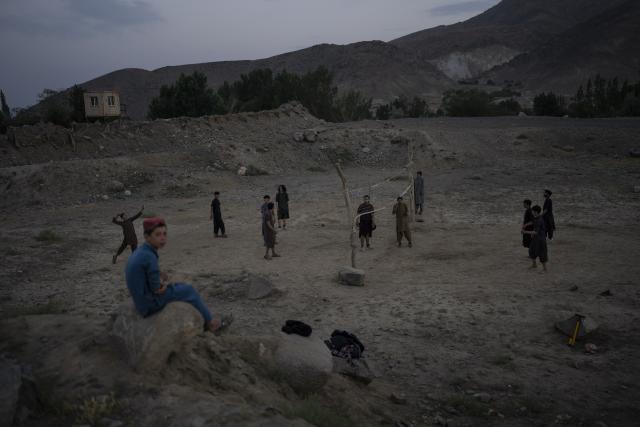UN warns Taliban that restrictions on Afghan women and girls make recognition `nearly impossible'

Views (77)

The U.N. envoy for Afghanistan warned the country's Taliban rulers Wednesday that international recognition as the country's legitimate government will remain “nearly impossible” unless they lift severe restrictions on women and girls’ education and employment. Roza Otunbayeva told the U.N. Security Council that the Taliban have asked to be recognized by the United Nations and its 192 other member nations, “but at the same time they act against the key values expressed in the United Nations Char
Roza Otunbayeva told the U.N. Security Council that the Taliban have asked to be recognized by the United Nations and its 192 other member nations, “but at the same time they act against the key values expressed in the United Nations Charter.”
In her regular discussions with the Taliban, she said, “I am blunt about the obstacles they have created for themselves by the decrees and restrictions they have enacted, in particular against women and girls.”
Despite U.N. appeals, Otunbayeva reported no change to the restrictions, including an April ban on Afghan women working for the United Nations. She called the prohibition a violation of Afghanistan’s obligations as a U.N. member nation “to respect the privileges and immunities of the United Nations and its officials, including Afghan women who work for us.”
Otunbayeva, a former president of Kyrgyzstan, reiterated that all non-essential Afghan staff, both women and men, are still staying at home, and she said the U.N. is “steadfast” that female national staff will not be replaced by male staff “as some Taliban authorities have suggested.”
In late April, the Security Council unanimously approved a resolution calling on the Taliban to swiftly reverse the increasingly harsh constraints imposed on women and girls and condemning the ban on Afghan women working for the U.N., calling it “unprecedented in the history of the United Nations.”
Based on discussions with many people across Afghanistan, Otunbayeva said, it is clear the Taliban’s decrees “are highly unpopular among the Afghan population” and cost the country’s rulers “both domestic and international legitimacy, while inflicting suffering on half of their population and damaging their economy.”
She said cash shipments, required for U.N. humanitarian operations, “are expected to decrease as donor funding declines,” which could negatively effect Afghanistan’s monetary stability. And despite the bans, she said, “the international community can do more to ensure the future stability of the Afghan economy in a way that directly improves the lives of Afghans.”
It said the infestation comes at the worst possible time, pointing to 8 million Afghans cut off from food aid in the past two months due to funding shortfalls, and over 15 million people – one-third of Afghanistan’s population – projected to face crisis levels of hunger over the next five months.
U.S. deputy ambassador Robert Wood blamed the continued deterioration of humanitarian conditions in large part on “Taliban interference,” warning that it will lead to more displacement, migrants and refugees.
While generous donors and “bold action” prevented widespread famine in 2021, he said this year Afghans are already seeing the impact of reduced international support, the closure of women-led humanitarian organizations, ration cuts, and a reduction in people receiving food.
Nonetheless, Wood said the United States, the world’s largest humanitarian aid donor, “cannot turn our backs on the Afghan people’s growing humanitarian needs” despite obstacles and competing global priorities and will continue providing assistance.
Russia’s U.N. Ambassador Vassily Nebenzia accused the U.S. and other Western nations of bringing Afghanistan “to ruins over 20 years,” being uninterested in “a genuine settlement and the rebuilding of Afghanistan.”
China’s U.N. Ambassador Zhang Jun called it unacceptable for donors to cut assistance “and to link humanitarian aid to other issues.”
He also expressed hope that "Afghan authorities will take firm and strong measures to combat all terrorism and to prevent Afghanistan from becoming again, a center of gravity for terrorism,” warning that terrorist groups including al-Qaida and the Islamic State “are colluding with each other and jeopardizing the security of the country, the region and the world at large.”
0 Likes
